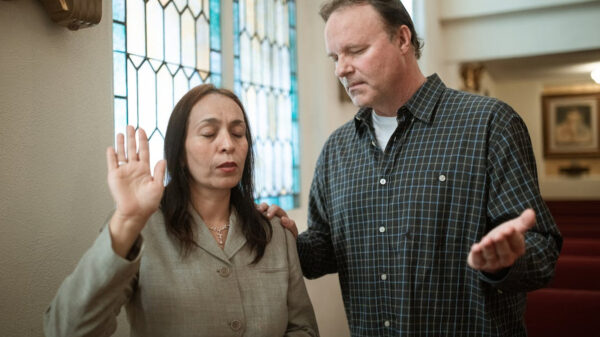Many atheists I know will readily acknowledge the existence of transcendent, objective moral laws. As an atheist myself, I spent many years enforcing laws as a police office, and I believed these laws represented more than simply the cultural norms of my state. I was convinced that they reflected objective moral truths about the nature of reality. In another post, I described several of these objective moral absolutes by simply adding the short expression, “for the fun of it” to any list of moral actions:
It’s never OK to steal “for the fun of it”
It’s never OK to lie “for the fun of it”
It’s never OK to kill “for the fun of it”
etc., etc.
Every human culture throughout history has acknowledged these universal moral truths, even as some have attempted to defend (sometimes sickeningly) their own justifications for these behaviors. While you and I may not agree on what justifies homicide in one culture or another over the course of human history, we both must recognize that historic cultural exceptions were not simply “the fun of it”. But couldn’t objective moral principles simply be cultural “conventions”? Are objective moral truths simply a matter of “shared morality”? If this is the case, all moral truths are defined by the group who “shares” them, and herein lies the problem.
If societies are the source of objective moral truths, what are we to do when two cultures disagree about these truths? How do we adjudicate between two competing views of a particular moral claim? To whom do we appeal? If objective moral truths are simply a matter of “shared morality”, the societal majority rules; “might makes right”. In a world like this, anyone (or any group) holding the minority position in a particular moral argument is, by definition, immoral. As my ministry partner, Greg Koukl, rightly observes in Relativism: Feet Firmly Planted in Mid-Air, there can be no moral activism if objective moral truths are simply a matter of majority opinion. When a society defines an objective moral truth and the vast majority of its members agree, on what basis can a lone reformer make a call for change? Anyone who advocates for a position that disagrees with the majority is, by definition, morally mistaken. A moral reformer, like Martin Luther King Jr., simply could not have argued for moral truth from a minority moral position if objective truths are defined by the majority. King Jr. would, by definition, have been considered immoral; his views were contrary to those held (and therefore defined) by the majority. The civil rights movement was successful because it appealed to an authority greater than the majority. The movement recognized transcendent moral truths are discovered (rather than created).
In fact, Supreme Court Justice Robert Jackson made this clear in his early career as a prosecutor at the Nuremburg trials following World War II. When the German soldiers who committed atrocities in the Jewish prison camps were brought to trial to face criminal charges, the issue of moral relativity was tested directly. The lawyers for the German officers argued that these men should not be judged for actions that were actually morally acceptable in the nation of Germany at the time of the war. They argued their supervisors and culture encouraged this behavior; in fact, to do otherwise would defy the culture and ideology in which they lived. In their moral environment, this behavior was part of the “shared morality”. Jackson argued against such a view of moral relativism and said, “There is a law above the law.” The officers were convicted and executed.
Jackson was referring, of course, to the moral law that transcends all of us, regardless of location on the planet or time in history. This moral law cannot simply be a matter of “shared morality” or “social convention;” it transcends and pre-dates every culture. As we think carefully and identify the transcendent moral laws that govern our world, it might also be useful to think carefully about the transcendent author of these laws. The moral law cannot simply be a matter of 'shared morality' or 'social convention;' it transcends and pre-dates every culture. Share on X

J. Warner Wallace is a Dateline featured cold-case homicide detective, popular national speaker and best-selling author. He continues to consult on cold-case investigations while serving as a Senior Fellow at the Colson Center for Christian Worldview. He is also an Adj. Professor of Christian Apologetics at Talbot School of Theology, Biola University, and a faculty member at Summit Ministries. He holds a BA in Design (from CSULB), an MA in Architecture (from UCLA), and an MA in Theological Studies (from Gateway Seminary).









































Pingback: If Moral Decisions Are Dependent on Circumstances, Are There No Objective Moral Truths? | Cold Case Christianity
Pingback: Are Theists the Only People Who Have the “Burden of Proof”? | Cold Case Christianity
Pingback: Three M’s That Naturalism Can’t Provide | Cold Case Christianity
Pingback: When the Essential Value of Law Enforcement Is Obvious | Cold Case Christianity
Pingback: It’s Better to Be Respected Than Liked | Cold Case Christianity
Pingback: Does Disagreement Prove There Are No Objective Moral Truths? | The Christian Apologetics Alliance
Pingback: The Self-Evident Nature of Objective Moral Truths | Cold Case Christianity
Pingback: The Moral Argument | Gospelgetics
Pingback: Does Disagreement Prove There Are No Objective Moral Truths? | Cold Case Christianity
Pingback: Did a Concern for the Species Influence Our Moral Development? | Cold Case Christianity
Pingback: Are Theists the Only People Who Have the “Burden of Proof”?
Pingback: Can we be good without God? – Cyber Penance
Pingback: mid-week apologetics booster (5-25-2017) – 1 Peter 4:12-16
Pingback: My reading list for May 21-27, 2017 | Clay on the Wheel
Pingback: Is God Real? Evidence for God from Objective Moral Truth | Jesus Quotes and God Thoughts
Pingback: What Criminal Trials Teach Us About Objective Moral Truth – Uncaged Lion